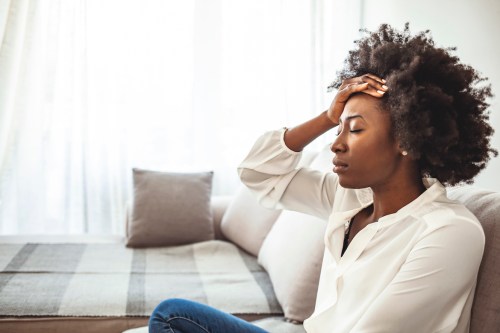Specific facets of someone’s personality can shine a light on how they might react to stressful situations. For instance, a Leo zodiac sign and an Aquarius might have completely different stress responses. There are other personality frameworks for deciphering how someone handles stress, too, like introverts versus extroverts.
Experts in This Article
Chicago-based psychotherapist
Katie Fracalanza, PhD, is an assistant professor of psychiatry and behavioral sciences at Stanford University.
That said, introverts and extroverts aren’t monolith and are actually quite nuanced. For example, it’s entirely possible to be a shy or anxious extrovert or a social introvert. “People tend to think of introverts as not liking to socialize as much as extroverts do, but that’s not always the most accurate way to look at it,” says psychotherapist Aimee Daramus, PsyD. “It’s more about what drains you and what gives you energy.”
So, while introverts and extroverts may have different respective processes for practicing effective self care to cope with stressors, the stress itself will largely be the same for both types of people, says Dr. Daramus. Both can experience stressors from work, relationship woes, or an everyday inconvenience such as their car breaking down.
Stress looks the same for introverts and extroverts, but relieving it is different for, and within, each group.
The way introverts and extroverts best relieve that stress, though, can vary—and being able to best help yourself requires a certain amount of mindfulness. “Knowing yourself and starting to take care of yourself based on your unique traits and needs, like introversion and extroversion, can lead to a more clear action plan,” says Katie Fracalanza, PhD, an assistant professor of psychiatry and behavioral sciences at Stanford University.
To that end, keep reading to find out how introverts and extroverts might go about handling stress, respectively, for optimum well-being, according to Dr. Daramus and Dr. Fracalanza.
How introverts best poised to deal with stress
Because introverts are energized by spending time alone, they often get stressed out when they have to be around people—especially if they’re not feeling up to it. “No matter how much they might be enjoying themselves, an introvert will be drained by socializing—just like, no matter how good a workout you’re having, you’re going to get tired eventually,” says Dr. Daramus.
To deal with this stress, Dr. Daramus and Dr. Fracalanza recommend building activities that allow you some alone time into your regular schedule. “Maybe you just want to watch TV alone in your room, or maybe you want to go out in nature, craft alone, spend time with your animals, or listen to music,” says Dr. Daramus. “It really is about noticing what types of alone time feel best for you.”
Dr. Daramus adds that a common problem that introverts face is feeling guilty over not spending time with loved ones. However, if you know you’re an introvert, Dr. Fracalanza suggests explaining to your loved ones that you need the alone time for you to be your best self. This might be a challenge because you don’t want to say no to others’ invitations—but, for your own good, you may have to every now and again. How, you might ask?
“It might look like saying to friends and loved ones, ‘Hey, I really need my recharge time. I need my ‘me’ time,’” says Dr. Fracalanza. “Communicating that need is key so that friends and loved ones don’t take it personally if an introvert isn’t at every single event.” Worried about how that conversation might go? Dr. Fracalanza adds that family and friends tend to skew supportive once they understand your needs. Instead of taking it personally, like you don’t want to spend time with them, they’ll come to understand that you need that recharge time.
How extroverts can find effective stress relief
When it comes to dealing with and relieving stress, an extrovert’s process is pretty much the opposite of an introvert’s, says Dr. Daramus. “Even extroverts need time alone sometimes, but too much time alone drains them, because that socializing, that being with other people, is what actually restores them,” she says.
Consider how the lockdown phase of the pandemic affected extroverts, in particular. “That lack of stimulation and face-to-face connection was really hard for a lot of my extroverted clients,” Dr. Fracalanza says. “It’s understandable, because that need to recharge in company, to connect physically, wasn’t being met.”
So when an extrovert is stressed, they may want to surround themselves with other folks to manage those feelings. And that can look like one of several different situations. “You might be the type of extrovert who prefers a quiet game night, or a night where you and your friends sit around and talk,” says Dr. Daramus. “There are different flavors of social life, so one of the biggest things for extroverts is to notice which kind of attention, company, and people are best for them when they’re stressed.”
Remember that being an introvert is not preferable to being an extrovert, and vice versa. Regardless of where you fall on that continuum, you can work to tailor your stress-relieving self-care practices to whatever really refuels you.
Oh hi! You look like someone who loves free workouts, discounts for cutting-edge wellness brands, and exclusive Well+Good content. Sign up for Well+, our online community of wellness insiders, and unlock your rewards instantly.
Sign Up for Our Daily Newsletter
Get all the latest in wellness, trends, food, fitness, beauty, and more delivered right to your inbox.
Got it, you've been added to our email list.











